Since new versions of artificial intelligence were introduced in 2023, AI has also been a topic of discussion for professional creatives: could it be that art will soon be made not only much cheaper and faster, but also better by computers?
It seems that AI is superior to humans in many respects – and that one of their last bastions is about to fall: creativity. And that's not all: creative people are not only facing competition from AI in more and more areas, they are also being robbed of their intellectual property. AI seems to be eating its way through the internet like a parasite, absorbing artistic works without regard for copyrights in order to blend them into new art.
- Is artificial intelligence now the creative part in the cooperation between man and machine?
- What can humans bring to the table against AI in order to be able to utilise AI on an equal footing as artists in the future? To do this, the strengths and weaknesses of AI must be analysed in a targeted manner.
AI has also become relevant for artists at the latest since it was able to convert text input into images and works of art: AI has access to a huge amount of data. This forms the basis of its new creations. And as it is constantly learning, these images are continuously improving.
As part of the project – the cooperation between humans and AI – hand-painted images are created using four different methods. The motifs develop intuitively according to the approach. The only predetermined guideline is the cooperation with the AI and the motto with which the project is entitled: Art and AI – Parasitism or Symbiosis? Each painting is based on its own form of collaboration with the AI and, accordingly, its own technique. The image creation process utilises creative techniques that have already been tried and tested.
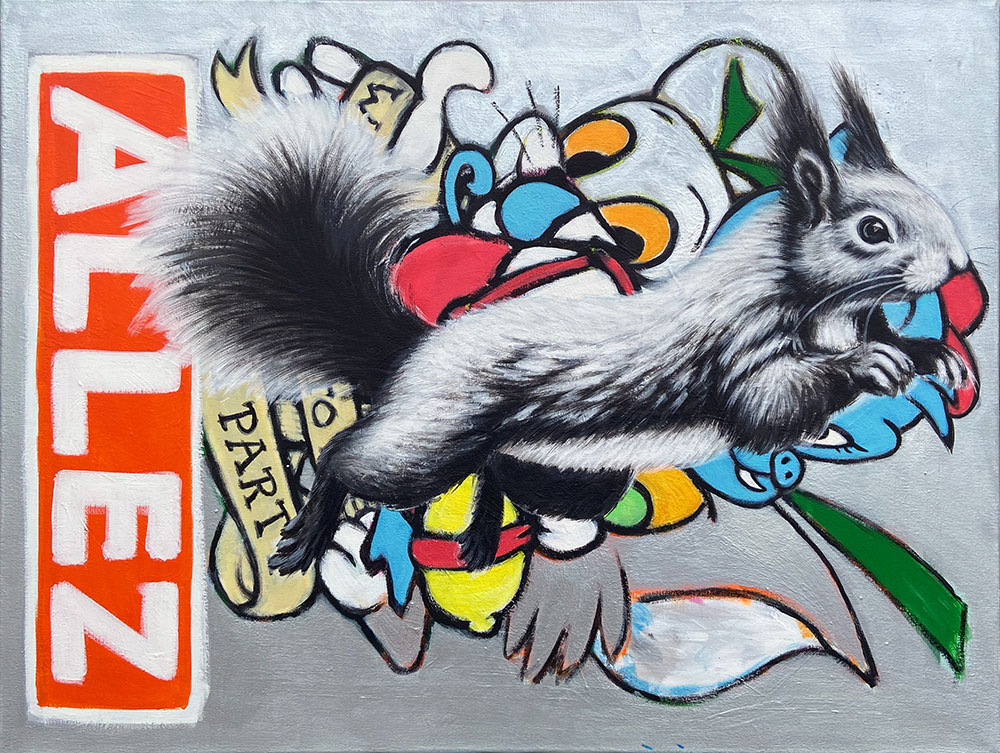
Naomi Lawrence. Allez. 80cm x 60cm / Acrylic on canvas
Method 1: the painterly combination of own images with AI motifs.
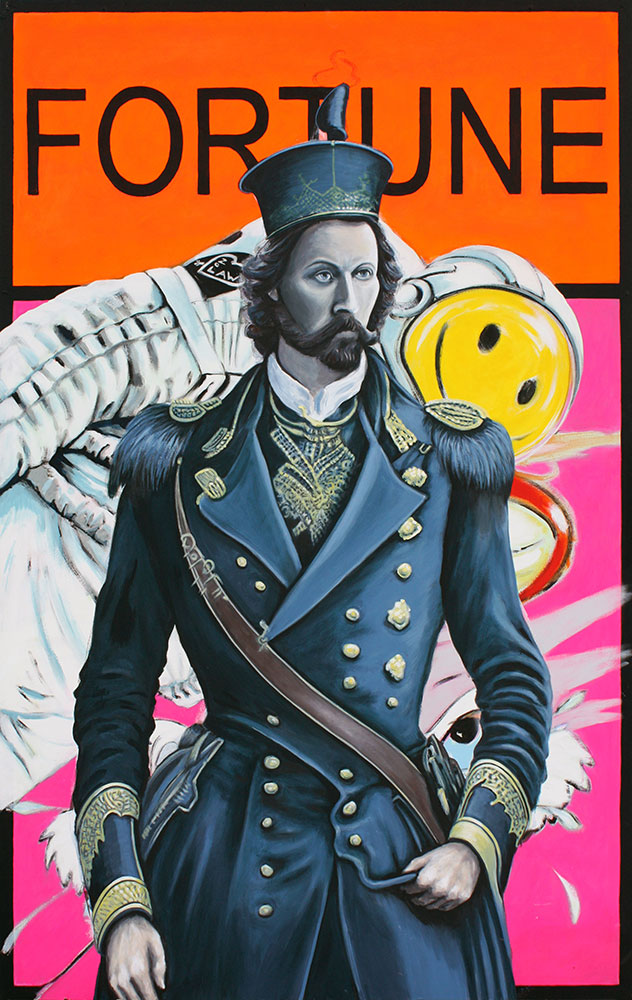
Method 1: the painterly combination of own images with AI motifs.
The method is the same as for the painting above: A section of a motif, created by AI Leonardo Diffusion, was painted over with acrylic on a picture that I had previously painted over several times before. The prompt for the motif used was: “King of Bavaria Ludwig II visits Starnberg”. This motif was created at the beginning of my collaboration with AI. The AI had chosen the style of a classic portrait painting. The fascinating aspect about the motif for me was that it seemed correct at first glance, although upon closer inspection it contained a lot of errors. I copied the errors as accurately as possible.
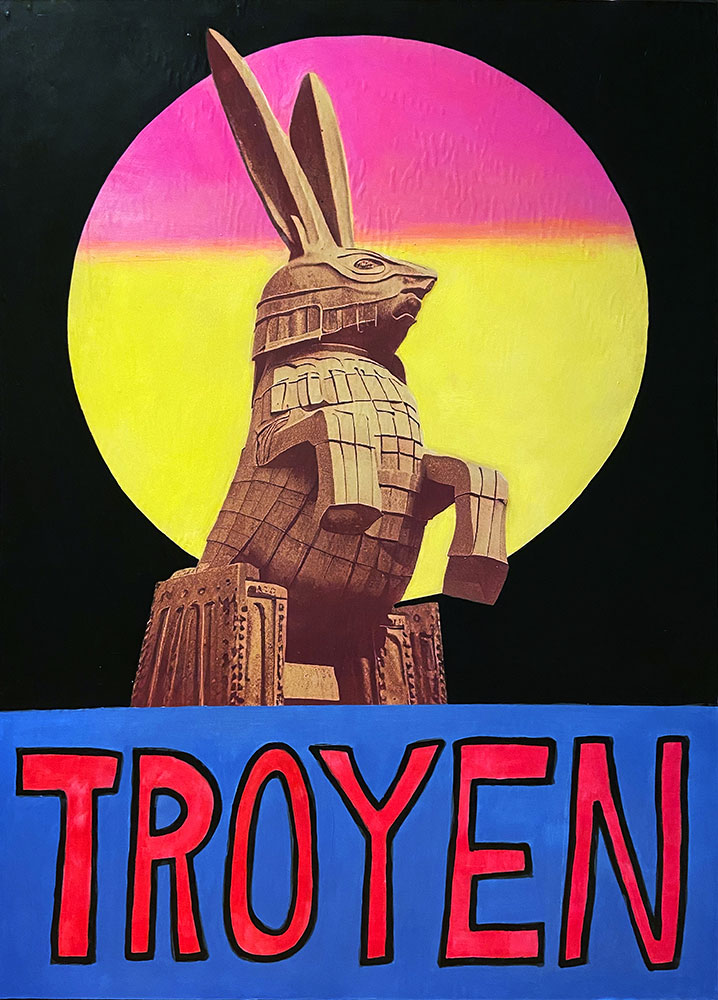
Naomi Lawrence. Troyen. 60cm x 84cm/ Acrylic on printed paper
Method 2: painting over a printed AI motif.
For this work an interesting image was first created with Image Creator. The prompt for the motif was: “A troyen bunny rising into the sky, old photography style.” I printed this motif in color, glued it to a MDF board and then painted over it with acrylic, combining two totally different styles.
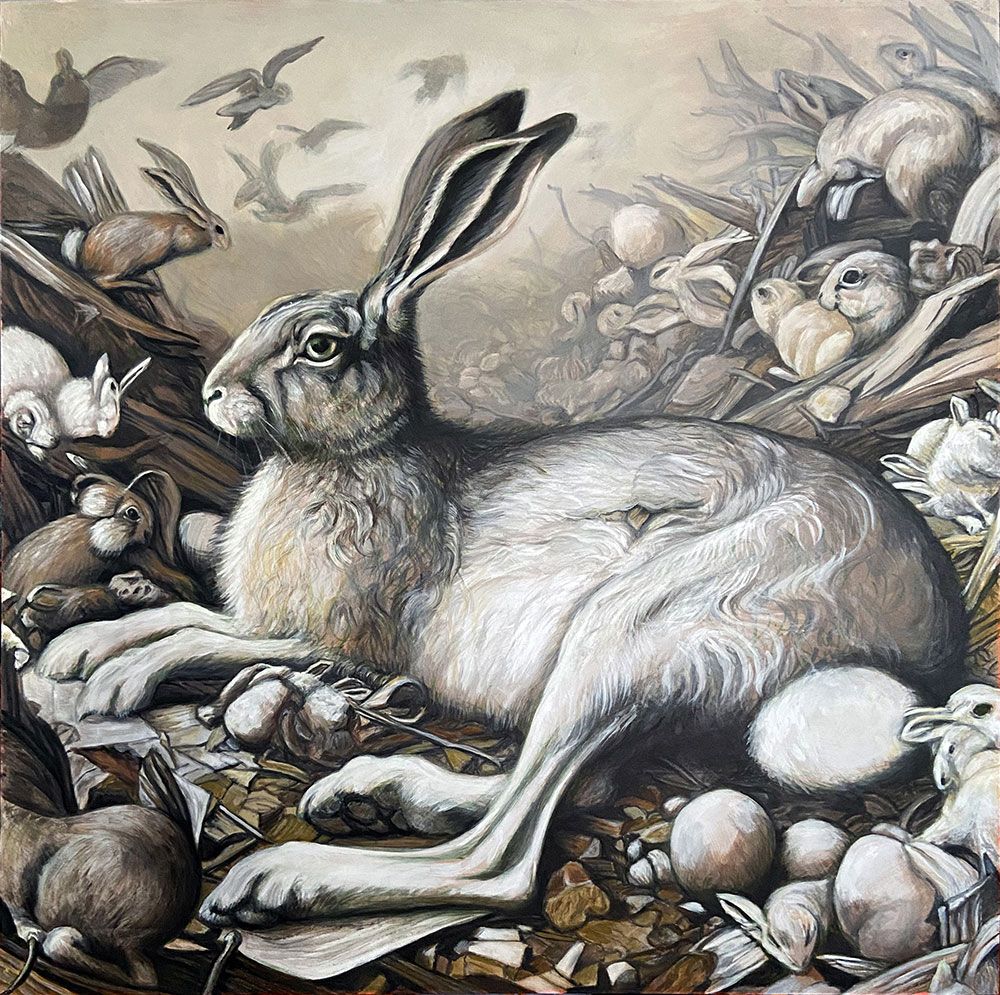
Naomi Lawrence. Calm. 80cm x 80cm/Acrylic on MDF board
Method 3: artistic interpretation of a motif previously created by AI.
For this work, an artistically interesting motif was first created using the AI Image Creator. This very complex motif was then meticulously copied with acrylic paint. By enlarging the subject, the typical errors of the AI were brought to the fore.
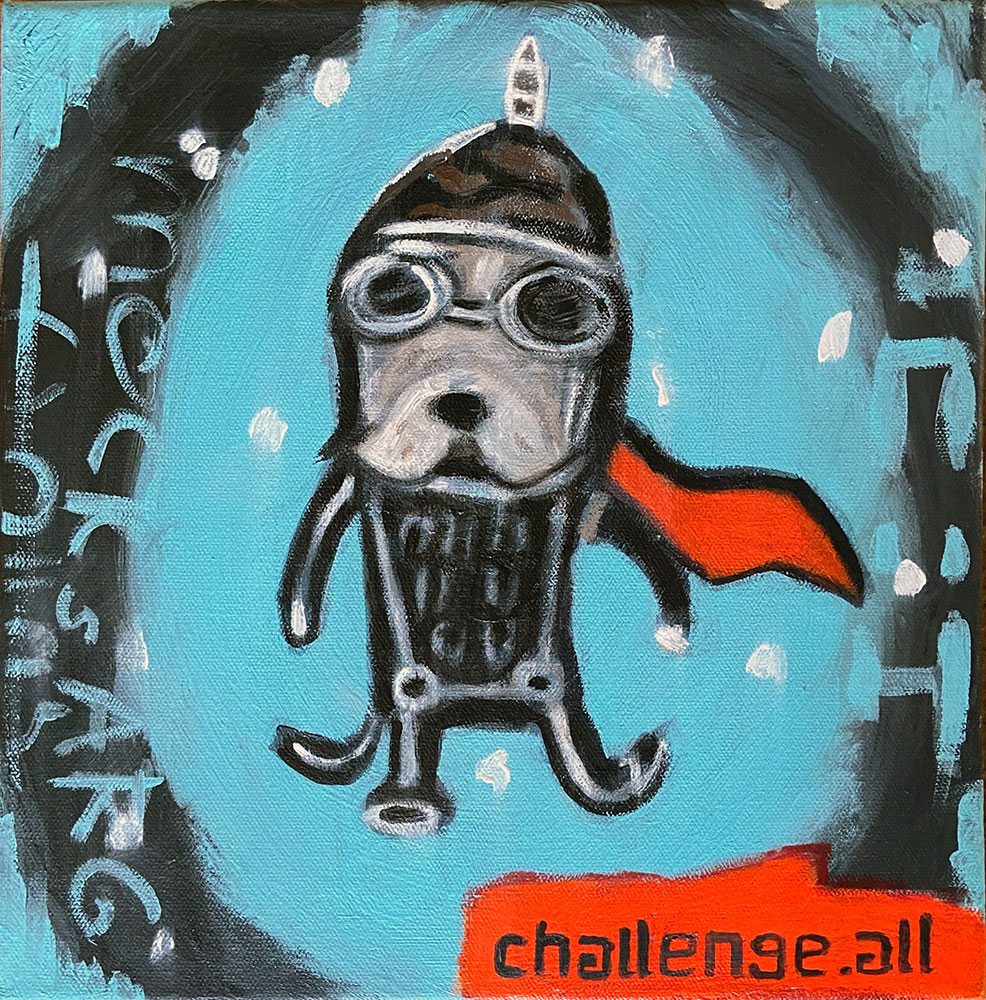
Naomi Lawrence. Challenge. 40cm x 40cm/Acrylic on canvas
Method 4: working with a trained model
For this work I used a model (cute character) from the AI Leonardo Diffusion that was trained with my own paintings. I created different motifs. One with the prompt: “The first dog in space walking on the moon” and another with the prompt: “A dog flying to the moon, graphic design art”. Then I painted a combination of these two motifs.
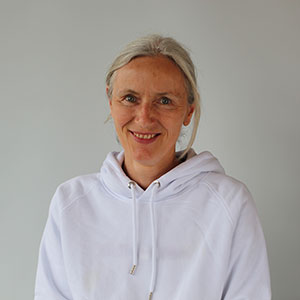
Naomi Lawrence studies Art and Multimedia at Ludwig-Maximilians-University in Munich. She is a visual artist and exhibits her work. She is represented by Galerie Ruetz (Munich).
